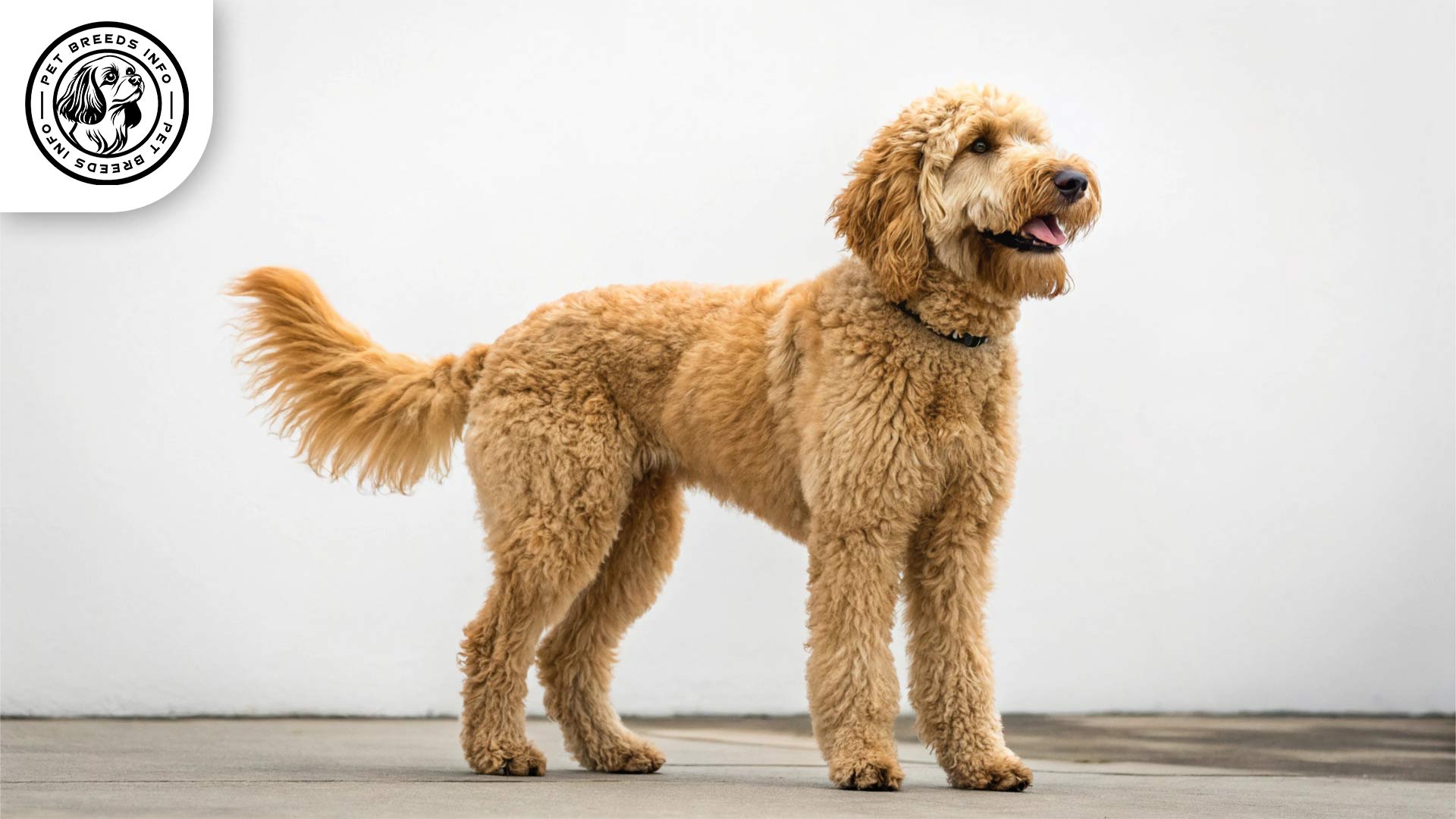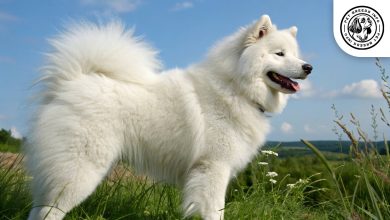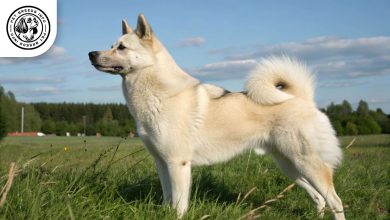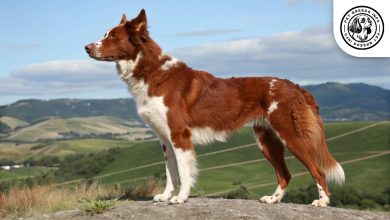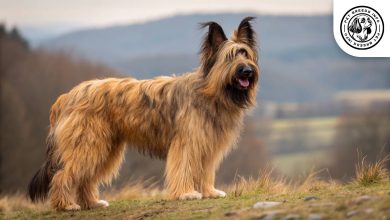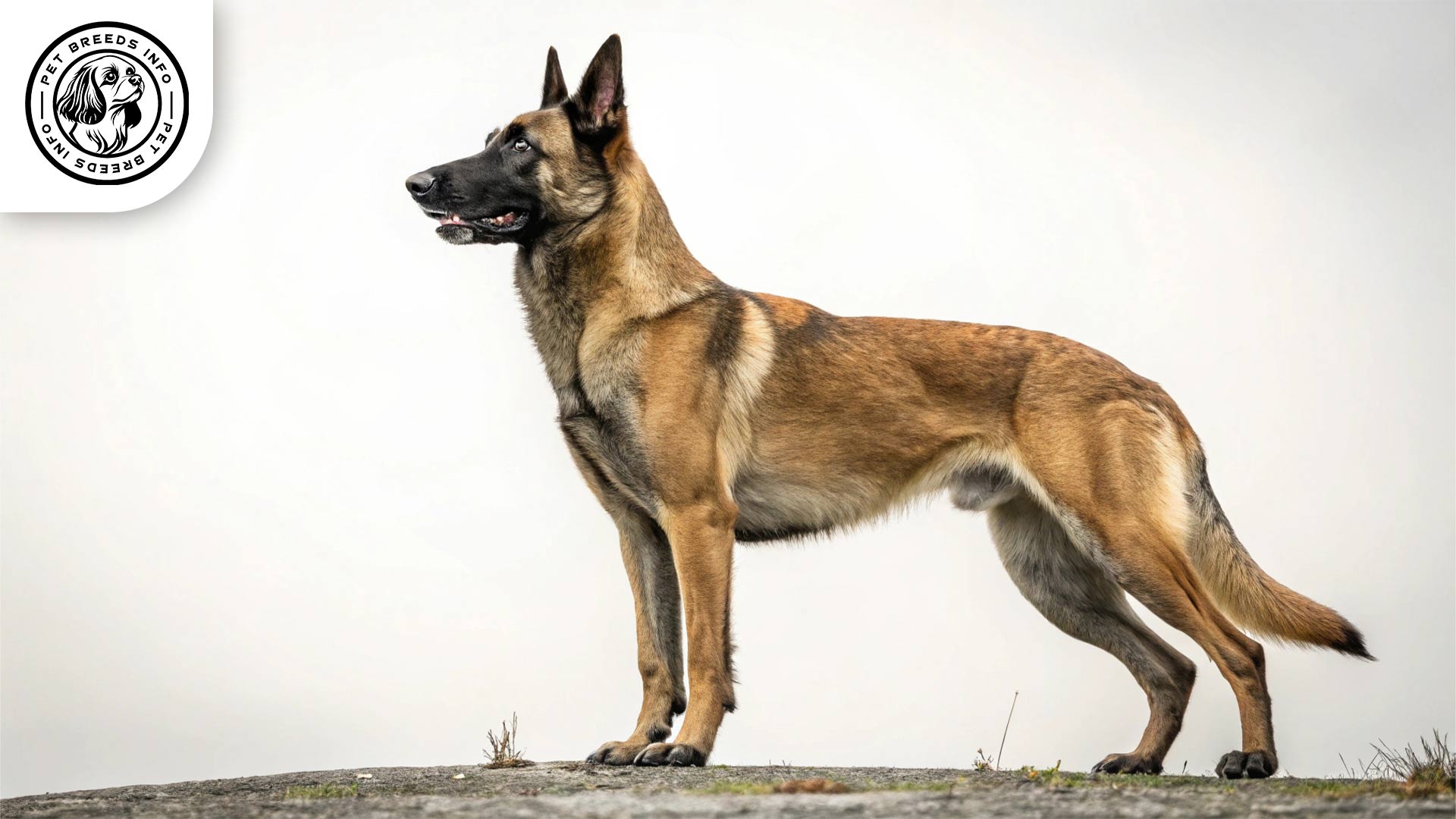Goldendoodle Dog Breed: Size, Health, Price & Personality
General Introduction of the Breed
The Goldendoodle is a hybrid dog breed that results from crossing a Golden Retriever with a Poodle. It is also known as the Groodle in some regions. This breed originated in North America and Australia during the 1990s as a designer dog developed for its hypoallergenic coat and friendly temperament.
Table of Contents
| Weight | 15-90 lbs (7-41 kg) |
| Lifespan | 10-15 years |
| Diet | High-quality kibble, wet, or raw diet |
| Care | Regular brushing, professional grooming, hygiene care |
| Health | Prone to hip dysplasia, PRA, allergies, ear infections |
| Color | Cream, apricot, red, black, chocolate, gray, parti-color |
| Nature | Affectionate, intelligent, social |
| Price | $1,500 – $3,500 |
Physical Characteristics
Goldendoodles come in various sizes, depending on whether they are bred from standard, miniature, or toy Poodles. Standard Goldendoodles range from 20 to 24 inches in height and weigh between 50 to 90 pounds, while miniature versions typically stand between 13 to 20 inches and weigh around 15 to 45 pounds.
The breed has a soft, wavy, or curly coat that comes in various colors such as cream, apricot, red, black, chocolate, gray, and parti-color combinations. Their eyes are typically round and dark brown, and their ears are floppy, similar to those of both parent breeds. The tail is usually long, slightly curved, and covered in a fluffy coat.
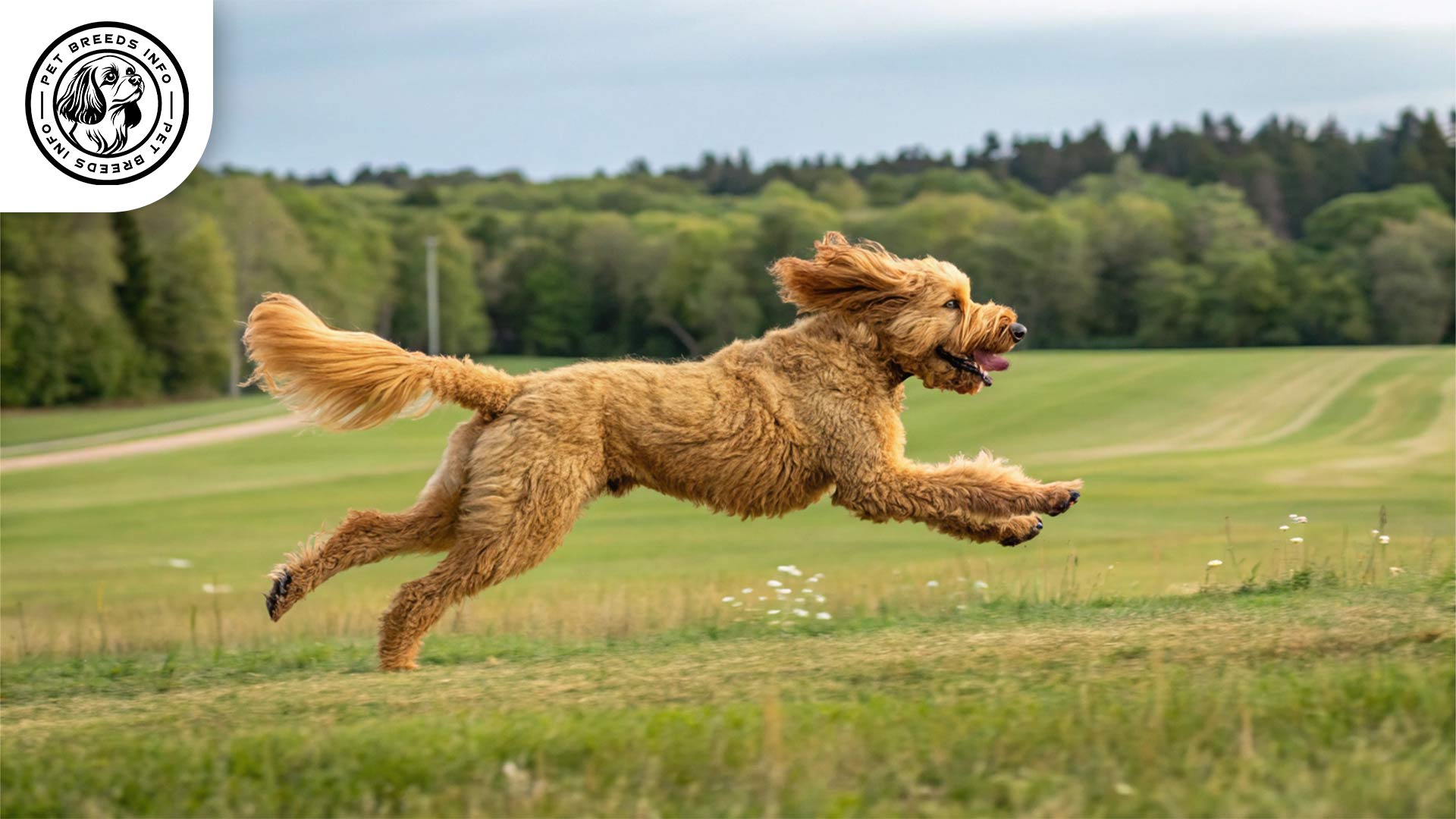
Personality and Temperament
Goldendoodles are highly intelligent and eager to learn, making them easy to train. They are affectionate, playful, and energetic, requiring regular physical and mental stimulation. These dogs form strong bonds with their owners and thrive on companionship.
They are excellent with children and generally get along well with other pets. Goldendoodles have a friendly disposition, making them poor guard dogs but ideal family pets. They are sensitive to their environment and can experience separation anxiety if left alone for long periods.
Care and Maintenance Requirements
This breed requires daily exercise to stay healthy and happy, such as walks, playtime, or agility training. Goldendoodles can adapt to apartment living but generally do better in homes with yards where they can run and play.
Their coat requires regular grooming to prevent matting, with brushing recommended at least three to four times per week. They are considered low-shedding but still require professional grooming every six to eight weeks.
Read More: Wetterhoun Dog
Goldendoodles are sensitive to extreme heat and cold, so proper precautions should be taken during harsh weather conditions. Regular hygiene care, including ear cleaning, nail trimming, and dental hygiene, is essential to ensure overall health.
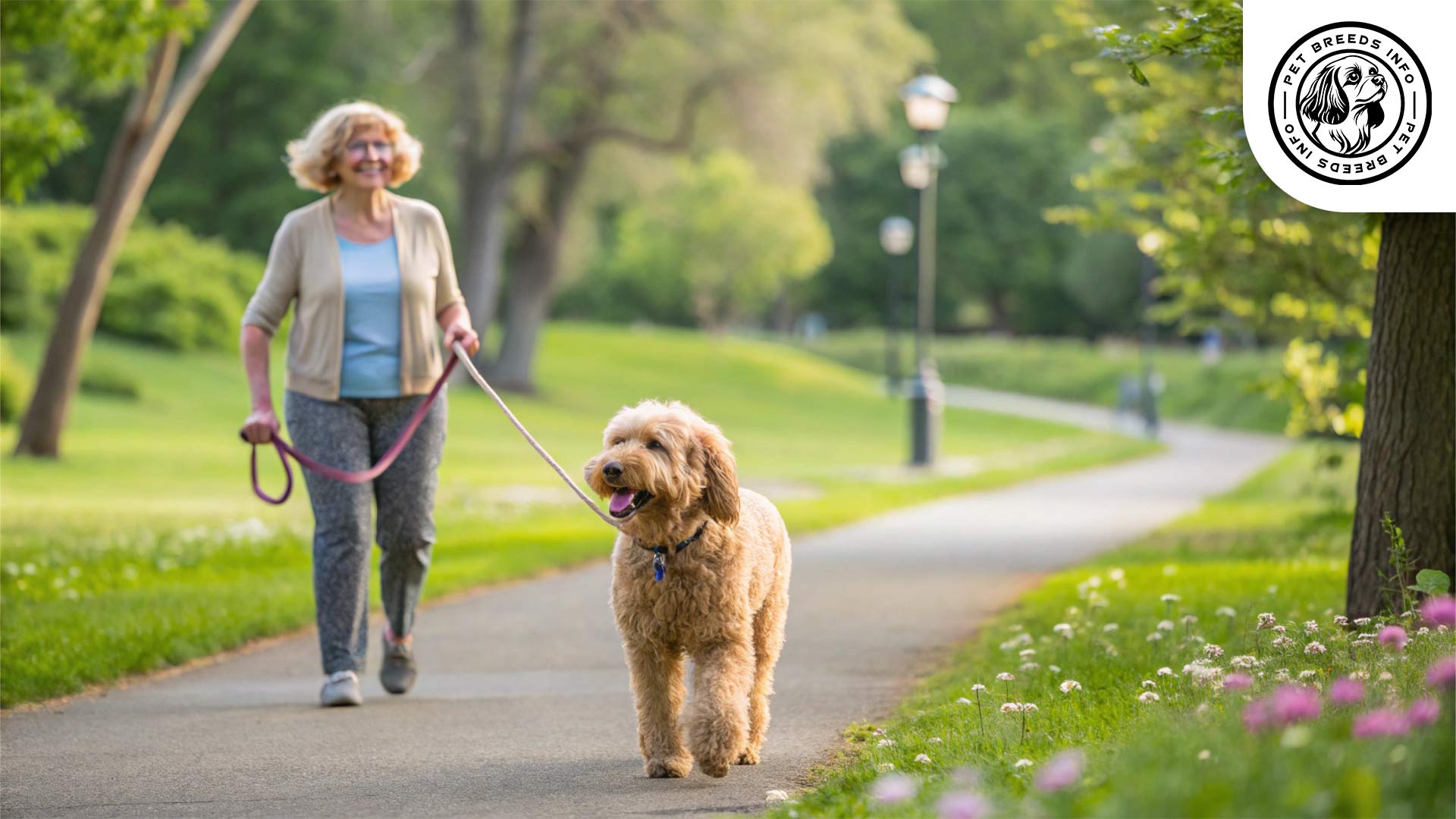
Diet and Nutrition
A Goldendoodle’s diet should consist of high-quality dry, wet, or raw food, with a focus on proteins and healthy fats. They may have food sensitivities, so grain-free or limited-ingredient diets might be needed.
Owners should avoid feeding chocolate, grapes, onions, and other toxic foods. Portion sizes vary based on size and activity level, but standard Goldendoodles typically require 2 to 4 cups of food per day, split into two meals.
Health and Common Medical Issues
Goldendoodles are generally healthy but can inherit conditions from their parent breeds. Common health concerns include hip dysplasia, progressive retinal atrophy, ear infections, allergies, and heart conditions.
The breed has an average lifespan of 10 to 15 years, with regular veterinary check-ups and vaccinations essential for maintaining good health.
Training and Behavior Management
Training a Goldendoodle is relatively easy, as they are intelligent and eager to please. Early socialization and positive reinforcement methods work best. Crate training and consistent commands help establish good behavior.
Read More: Zuchon Dog
They respond well to reward-based training and thrive on interactive activities that stimulate their minds. Early exposure to different environments, people, and animals helps them grow into well-adjusted adult dogs.
Interaction with Other Animals and Humans
Goldendoodles are one of the best breeds for families with children. They are gentle, affectionate, and playful, making them excellent companions for kids. They also get along well with other pets, including dogs and cats.
They are highly social and prefer to be around people, making them best suited for families rather than individuals looking for an independent dog. Due to their attachment to humans, they may develop separation anxiety if left alone frequently.
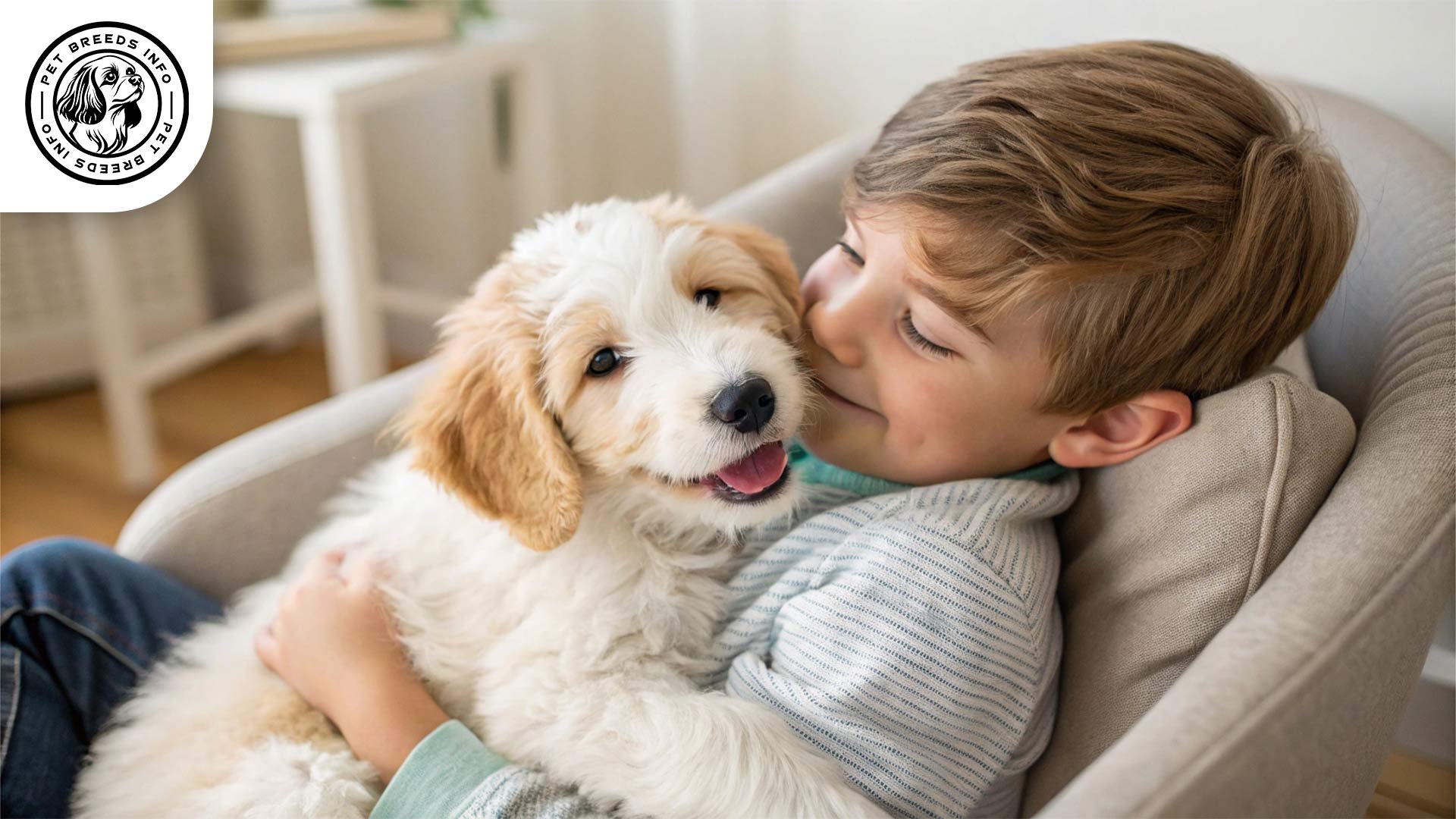
Price and Availability
The cost of a Goldendoodle varies depending on breeder reputation, location, size, and coat type. Prices typically range from $1,500 to $3,500. Adoption fees are usually lower and range from $300 to $800.
It is essential to choose a reputable breeder who conducts health screenings and ethical breeding practices. Adoption from rescue organizations and shelters is another great option for those looking to provide a home to a Goldendoodle in need.
Conclusion and Final Thoughts
The Goldendoodle is an affectionate, intelligent, and versatile breed that fits well into family life. They require regular exercise, grooming, and companionship, making them best suited for active individuals or families.
Potential owners should consider their grooming needs, social behavior, and sensitivity to being left alone. For those who can provide the love, care, and attention they need, Goldendoodles make wonderful companions who bring joy and loyalty to their homes.
Read More: Labradoodle Dog
FAQ
Do Goldendoodles get along with children?
Yes, they are gentle and playful, making them excellent family pets.
Are Goldendoodles good with other pets?
Yes, they are friendly and can coexist well with other dogs and cats.
How often should a Goldendoodle be groomed?
Brushing 3-4 times a week and professional grooming every 6-8 weeks is recommended.
Are Goldendoodles easy to train?
Yes, they are intelligent and eager to please, making training relatively easy with positive reinforcement.
